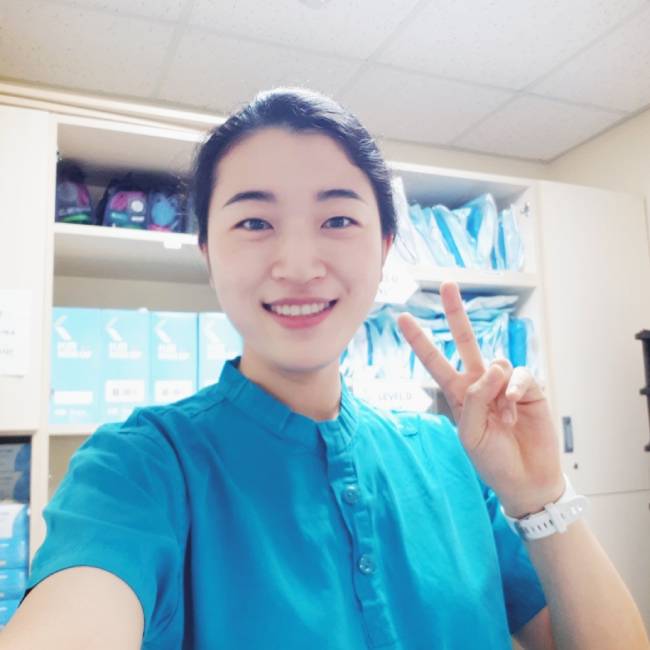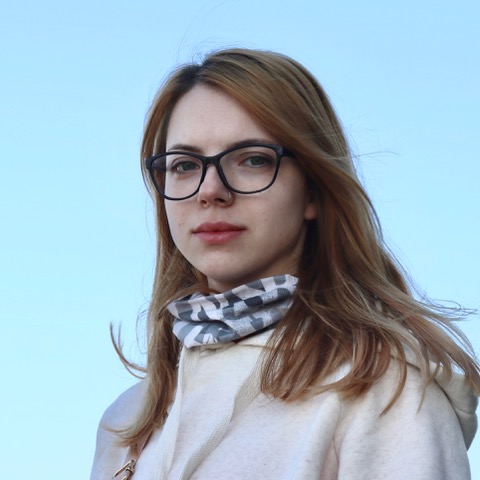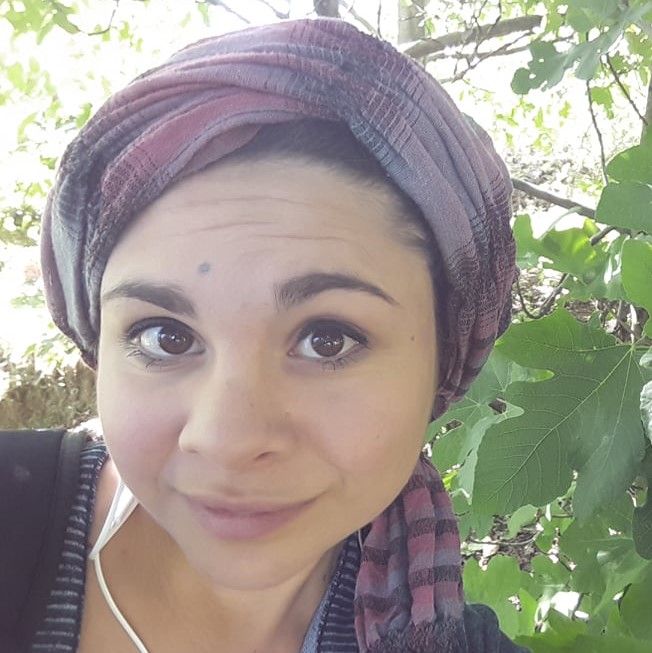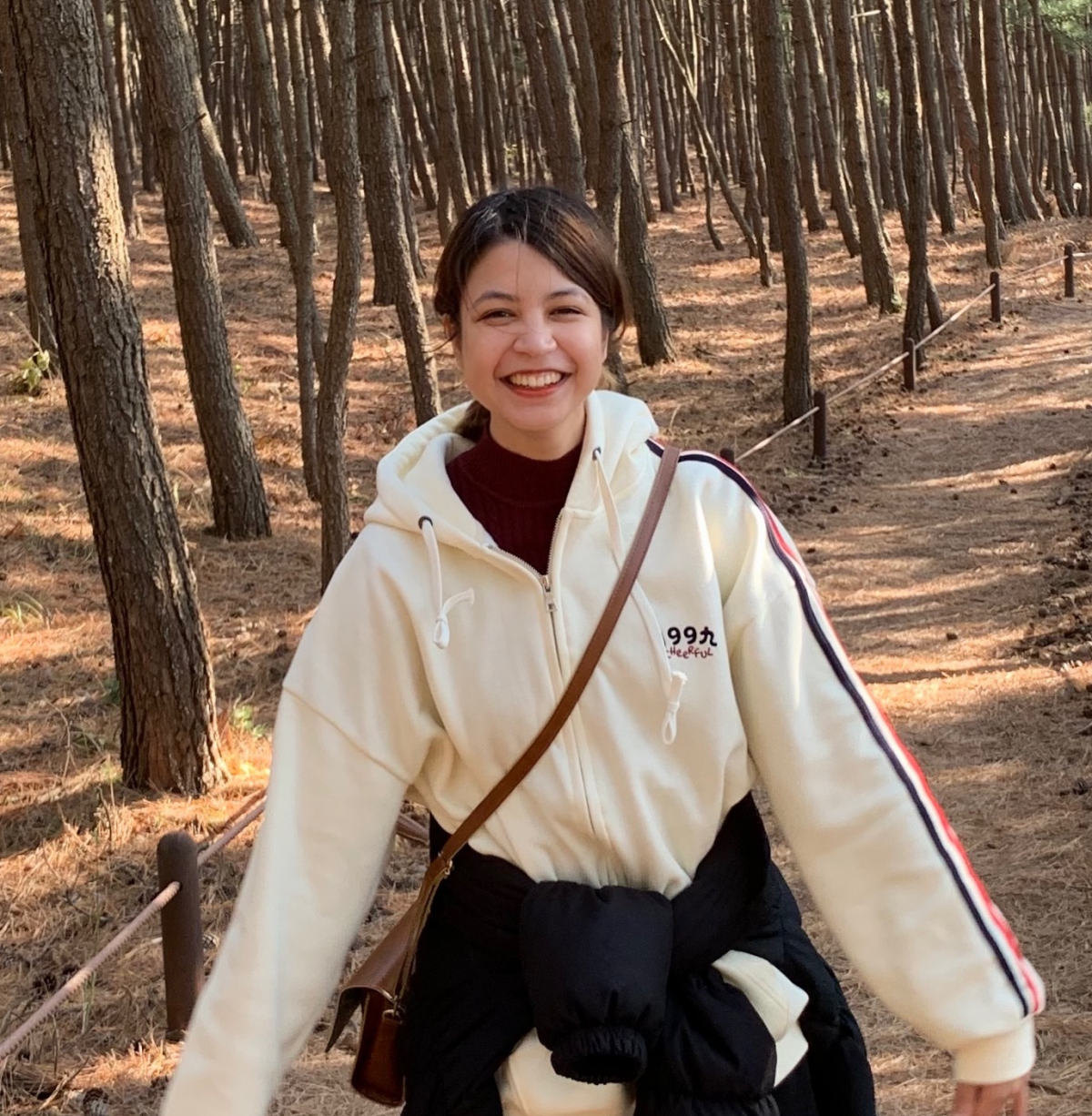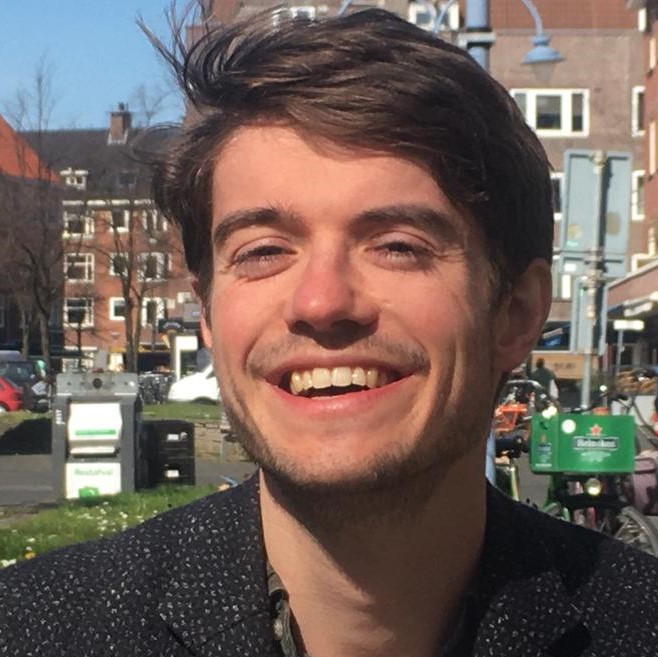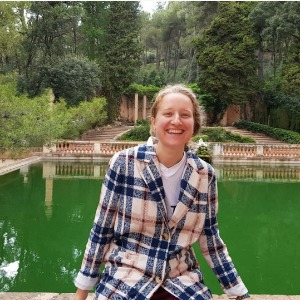Las crónicas de una enfermera de la UCI durante Covid-19: El impacto psicológico
Desde el verano pasado, he estado atendiendo a los pacientes de Covid-19 que necesitan cuidados intensivos. Aquí está mi historia sobre cómo es trabajar como enfermera durante esta pandemia.
South Korea, Eastern Asia
Story by Lee Jayoung. Translated by Aobh Mc Anulty
Published on June 8, 2021.
This story is also available in 



Atención al contenido: Esta historia contiene descripciones de la degradación física y psicológica de los pacientes de la UCI debido al Covid-19, lo que puede resultar molesto para algunos lectores.
Soy enfermera y trabajo en la Unidad de Cuidados Intensivos (UCI) de un gran hospital estatal de Seúl, en surcoreano. Desde el verano pasado, me ocupo de los pacientes de Covid-19 que necesitan cuidados intensivos. Esta es mi historia sobre cómo es trabajar como enfermera durante esta pandemia.
Por encima de los efectos que el Covid-19 tiene en el cuerpo, he observado que el coronavirus tiene mayores efectos psicológicos en los pacientes de la UCI que otras enfermedades. Los pacientes están solos en la sala de aislamiento; no pueden ver a sus familias y amigos. Están enfermos con esta enfermedad aún muy desconocida y están tumbados en la cama, contemplando la posibilidad de la muerte. Estar en una habitación de hospital con luz y ruidos de máquinas de fondo también significa que estos pacientes suelen tener problemas para dormir. Están en un estado de incertidumbre constante y es muy duro para ellos. Como alguien que tiene que ver a estas personas todos los días, yo también me encuentro con dificultades. No sólo soy su enfermera, sino que me he convertido en su familia y en su amiga. Naturalmente, esto me afecta profundamente desde el punto de vista psicológico.
No puedo destacar lo importante que es la compañía de los familiares para un paciente. Pero esta columna de apoyo ha sido eliminada por Covid-19.
Una vez tuve un paciente, un hombre mayor, que había estado en la sala durante 3 meses. Estaba en mal estado. Al haber pasado tanto tiempo en la sala de aislamiento, tenía una gran depresión. Como su cuerpo también estaba débil, no podía soportar largas llamadas con su familia, así que decidimos que las llamadas sólo se permitían a determinadas horas. Todos los días me rogaba que llamara a su familia y luego decía que quería morir. Imagina tener que cuidar a alguien que siempre te dice que no quiere vivir más. No puedo insistir lo suficiente en lo importante que es la presencia de los familiares para un paciente. Pero esta columna de apoyo ha sido eliminada por Covid-19.
En la UCI no es fácil vivir, pero también no es fácil morir. Desde el punto de vista físico, los pacientes tienen tubos que sobresalen de su cuerpo. Sufren por las agujas que les suministran nutrientes vitales y no pueden mover su cuerpo debido a la pérdida de masa muscular. Las máquinas de las que dependen para sobrevivir les causan un dolor que hace difícil vivir. Me parece increíblemente doloroso presenciar esto. Desde el punto de vista psicológico, tienen que sufrir la vergüenza porque a menudo se ensucian. Se sienten solos y echan de menos a sus seres queridos mientras no saben si o cuándo van a morir. Cada día, estas personas tienen que sufrir un dolor que no puedo comprender.
A veces me pregunto si no sería mejor que supiéramos exactamente cuándo vamos a morir. Aunque no tengo ninguna religión, me pregunto cuándo vendrá la Parca a por mis pacientes, para saber si tengo un día más para salvarlos, para darles el mejor tratamiento posible. Lo único que deseo es que salgan por la puerta del hospital gritando: "¡Hurra, estoy vivo!"
Durante el último año, muchas enfermeras y médicos han renunciado. Otros, que ya no pueden soportar la presión en la sala de la UCI, pidieron ser trasladados a departamentos menos estresantes. Otra razón por la que renuncian es que trabajamos con infectados de Covid-19. La gente de fuera del hospital nos ve como un peligro y estamos alienados en la sociedad.
Aunque es difícil, no me gustaría tomarme vacaciones o dejar de trabajar. La forma en que lucho contra todo, el malestar físico y el dolor psicológico, es pensar que esta experiencia forma parte de mi desarrollo personal como ser humano.
How does this story make you feel?
Follow-up
Do you have any questions after reading this story? Do you want to follow-up on what you've just read? Get in touch with our team to learn more! Send an email to [email protected].
Talk about this Story
Please enable cookies to view the comments powered by Disqus.
Subscribe to our Monthly Newsletter
Stay up to date with new stories on Correspondents of the World by subscribing to our monthly newsletter:
Other Stories in Español
Explore other Topics
Get involved
At Correspondents of the World, we want to contribute to a better understanding of one another in a world that seems to get smaller by the day - but somehow neglects to bring people closer together as well. We think that one of the most frequent reasons for misunderstanding and unnecessarily heated debates is that we don't really understand how each of us is affected differently by global issues.
Our aim is to change that with every personal story we share.
Community Worldwide
Correspondents of the World is not just this website, but also a great community of people from all over the world. While face-to-face meetings are difficult at the moment, our Facebook Community Group is THE place to be to meet other people invested in Correspondents of the World. We are currently running a series of online-tea talks to get to know each other better.











